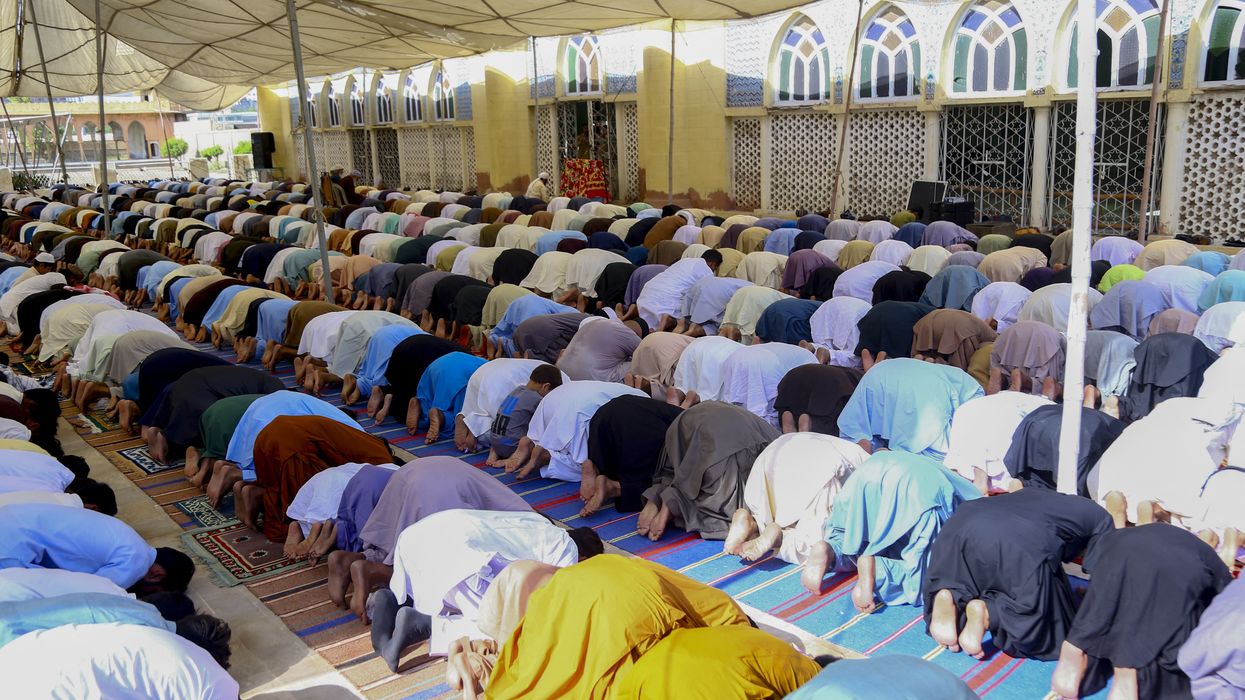RELIGIOUS extremists in Pakistan stopped members of the Ahmadi community from offering Eid prayers in at least seven cities, the Jamaat-e-Ahmadiyya Pakistan (JAP) said on Tuesday.
In Punjab, police arrested two Ahmadis and booked three others for trying to perform the ritual animal sacrifice during Eid-ul-Azha. According to JAP, members of Tehreek-e-Labbaik Pakistan (TLP) also forced two Ahmadis to renounce their faith.
In recent months, groups led by the TLP have been stopping Ahmadis from offering Friday prayers at their worship places. Ahead of Eid, police summoned several Ahmadis and made them sign written statements agreeing not to offer Eid prayers or perform sacrifices according to their beliefs.
The JAP said Eid prayers were blocked in Khushab, Mirpur Khas, Lodhran, Bhakkar, Rajanpur, Umerkot, Larkana and Karachi. It claimed religious extremists, with support from local administrations, prevented Ahmadis from praying even inside their own worship places.
In Lahore, TLP activists surrounded the community’s oldest worship place in Ghari Shahu on Eid day and demanded police action. The police responded by sealing the site.
In Nazimabad, Karachi, the JAP said that two members, Irfan-ul-Haq and his son, were taken to a police station along with their sacrificial animal by TLP activists. "Fearing for their safety, they recited the Islamic declaration of faith. The TLP activists celebrated by garlanding them and claiming their conversion to Islam," it said.
Punjab police confirmed that two Ahmadis were arrested and three others booked under Section 298-C of the Pakistan Penal Code for attempting to perform Islamic rituals. They said Ahmadis are not allowed to observe such rituals under the law.
The JAP called this treatment discriminatory, unconstitutional and illegal. "Under Article 20 of Pakistan's Constitution, every citizen is guaranteed freedom of religion. However, Ahmadis are routinely denied this right along with other fundamental rights," it said.
The group said such incidents indicate a wider pattern of discrimination against the Ahmadi community. It added that forced conversions are a serious human rights violation and raise questions about religious freedom in Pakistan.
The JAP said the community remains highly vulnerable to attacks by extremist groups like the TLP, which it claimed operate with impunity.
In early May, a senior Ahmadi doctor was allegedly shot dead in Punjab. On May 15, around 100 graves belonging to Ahmadis were desecrated in the same province.
Though Ahmadis consider themselves Muslims, Pakistan’s parliament declared them non-Muslims in 1974. A 1984 ordinance later prohibited them from calling themselves Muslims or practising aspects of Islam. This includes building minarets or domes on mosques, or publicly displaying Quranic verses.
However, the Lahore High Court has ruled that places of worship built before the 1984 ordinance are legal and should not be altered or demolished.
(With inputs from agencies)




